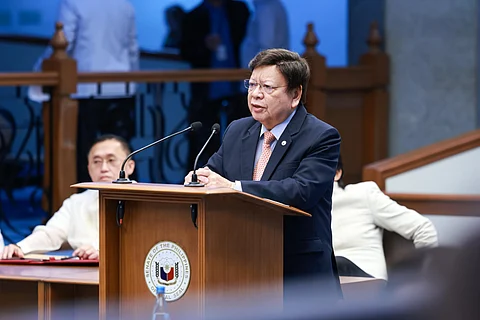
- NEWS
- the EDIT
- COMMENTARY
- BUSINESS
- LIFE
- SHOW
- ACTION
- GLOBAL GOALS
- SNAPS
- DYARYO TIRADA
- MORE

Senator Rodante Marcoleta on Wednesday urged the Department of Education (DepEd) to keep politics out of the picture and guarantee the continuity of its school building program to finally address the persistent classroom shortage.
Speaking during a public hearing of the Senate Committee on Basic Education, Marcoleta pointed to the lack of institutional memory and consistency in DepEd’s classroom infrastructure program, which he said has contributed to the worsening gap in school facilities over the years.
“No politics. There should be continuity in the program to build classrooms,” the senator said, emphasizing that education infrastructure should not be disrupted by changing administrations or agency leadership.
Marcoleta pressed DepEd Undersecretary Wilfredo Cabral on why the classroom shortage has worsened since 2018, despite showing promising progress in earlier years.
The senator noted that in 2016 and 2017, DepEd had made significant strides in addressing the problem.
However, this momentum stalled when the responsibility for building schools under the Basic Educational Facilities Fund (BEFF) was transferred to the Department of Public Works and Highways (DPWH) under the General Appropriations Act (GAA).
“Before DPWH took over, you were saying that there was a light at the end of the tunnel. But, you were asked, why didn’t you continue it? Even if it was a good policy?” Marcoleta said.
Cabral responded that he was not part of the implementing team at the time, an answer Marcoleta found unacceptable.
“That’s the problem. There is no continuity, no institutional memory in DepEd,” he said.
Marcoleta then cited South Korea’s long-term educational planning, which he said has been followed consistently since 1901, regardless of changes in political leadership.
“Even if they jailed three presidents, it did not matter. They continued the program of the president who was imprisoned,” he said.
“There should be no politics. That’s the difference between us and South Korea,” he added.
The hearing also took up Senate Bill 121, the proposed Classroom Building Acceleration Program, which seeks to cut costs and speed up classroom construction through innovative approaches like public-private partnerships, collaborations with non-profit organizations, and replicating successful local government projects.
The bill is seen as a crucial step toward solving the classroom shortage, which continues to hinder the delivery of quality basic education in the country.
